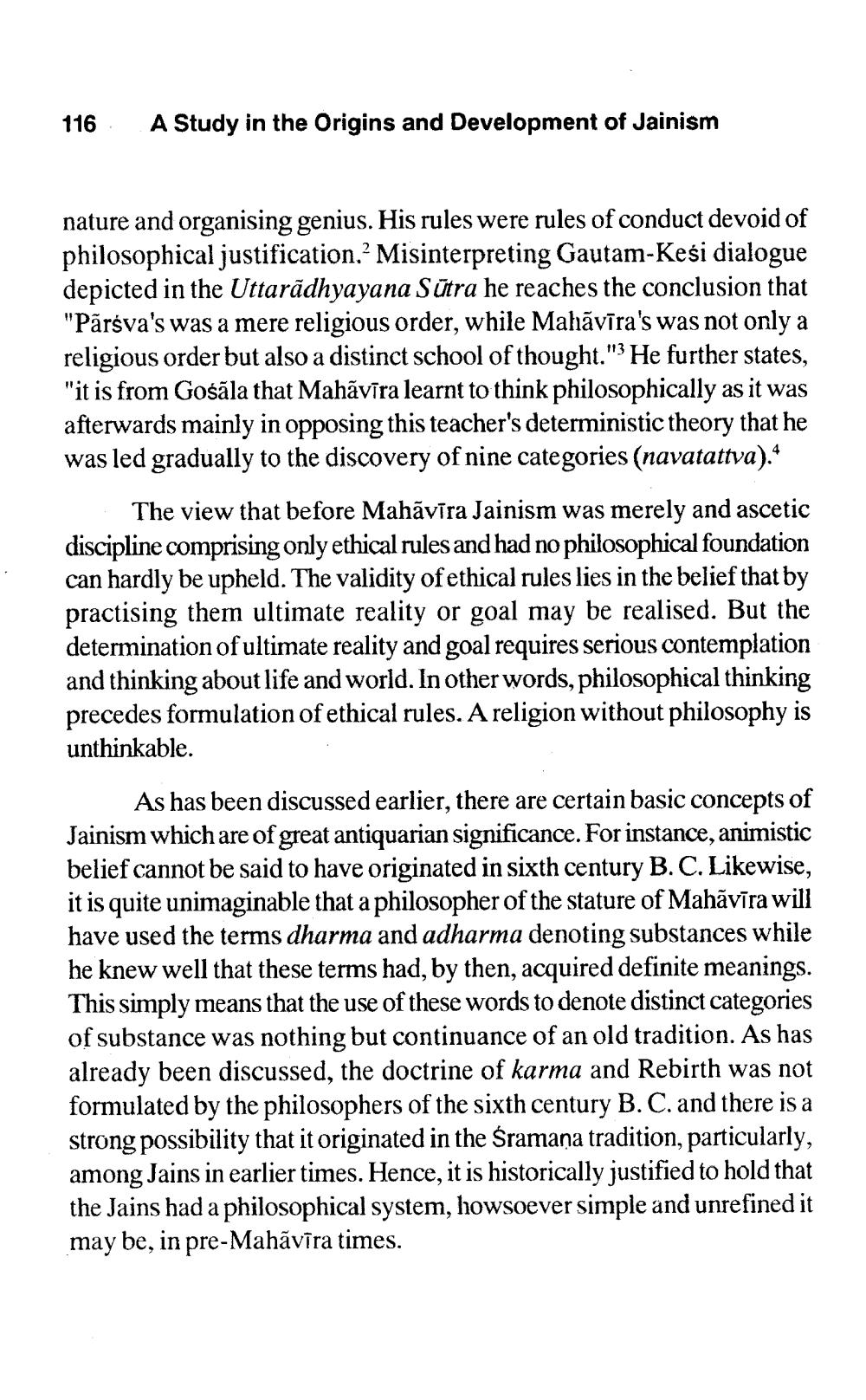________________
116
A Study in the Origins and Development of Jainism
nature and organising genius. His rules were rules of conduct devoid of philosophical justification. Misinterpreting Gautam-Kesi dialogue depicted in the Uttaradhyayana Sūtra he reaches the conclusion that "Pārsva's was a mere religious order, while Mahāvīra's was not only a religious order but also a distinct school of thought."3 He further states, "it is from Gośāla that Mahāvīra learnt to think philosophically as it was afterwards mainly in opposing this teacher's deterministic theory that he was led gradually to the discovery of nine categories (navatattva).*
The view that before Mahāvīra Jainism was merely and ascetic discipline comprising only ethical rules and had no philosophical foundation can hardly be upheld. The validity of ethical rules lies in the belief that by practising them ultimate reality or goal may be realised. But the determination of ultimate reality and goal requires serious contemplation and thinking about life and world. In other words, philosophical thinking precedes formulation of ethical rules. A religion without philosophy is unthinkable.
As has been discussed earlier, there are certain basic concepts of Jainism which are of great antiquarian significance. For instance, animistic belief cannot be said to have originated in sixth century B. C. Likewise, it is quite unimaginable that a philosopher of the stature of Mahāvīra will have used the terms dharma and adharma denoting substances while he knew well that these terms had, by then, acquired definite meanings. This simply means that the use of these words to denote distinct categories of substance was nothing but continuance of an old tradition. As has already been discussed, the doctrine of karma and Rebirth was not formulated by the philosophers of the sixth century B. C. and there is a strong possibility that it originated in the Śramana tradition, particularly, among Jains in earlier times. Hence, it is historically justified to hold that the Jains had a philosophical system, howsoever simple and unrefined it may be, in pre-Mahāvīra times.




